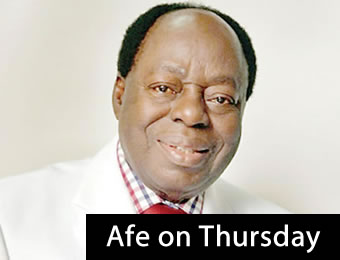“Whether or not these matters are better resolved through a referendum will be subject of next week edition.”
SINCE 1999 when the army took over from elected civilian government, almost everything that could go wrong with a nation has actually gone wrong with Nigeria. We have gone from a country which held so much promise to one which still struggles to achieve the most basic indices of development. Public infrastructures, utilities and amenities collapsed, we fought a civil war, crime and corruption became the order of the day. Political and religious tribe are common place. To make matters worse, insurgency and terrorism joined the fray, oil dropped to lowest level ever and most states cannot pay workers’ salary. Hitherto, many Nigerians have been advocating for restructuring of the lopsided constitution bequeath to Nigerians by the military in 1999. Whilst some within and outside government described proponents of the idea of National Conference as unpatriotic, the government of President Goodluck Jonathan bought the idea and set up a national conference consisting of 494 members. The report of the National Conference consist of over 10,500 pages.
THE TASK BEFORE CONFERENCE
The task faced by the Conference was best described by the Chairman, Hon. Justice Idris Kutigi in his address at the presentation of the report to the President as follows:
“In the post-independence history of Nigeria, there have been four Conferences, including this 2014 National Conference; however, Mr. President, our own task has been the most arduous…
“The following statistics graphically illustrates this. The 1978 Constituent Assembly had a membership of 230 people and met for 9 months. The 1995 National Constitutional Conference had a membership of 371 people and met for twelve (12) months. The 2005 National Political Reform Conference was made up of 400 delegates and met for 5 months. We are 494 in membership and you made us do all this work in four and half months…Mr. President, we did not try to ignore or bury our differences. We addressed these differences while respecting the dignity of those holding these differences and sought to construct solutions which would become building blocks for a just and stable nation…Mr. President, we approved over 600 resolutions; some dealing with issues of law, issues of policy and issues of constitutional amendments. These resolutions did not deal with frivolous or inconsequential issues. We showed courage in tackling substantial and fundamental issues.”
NOTABLE RECOMMENDATIONS
From media reports, the following are some of the recommendations which have been made by the Conference:
- Fundamental Objectives and Directive Principles of State policy – Chapter Two of the Constitution of the Federal Republic of Nigeria 1999 contains principles which are meant to guide governments at all levels. However, by the said provisions of the chapter are not justiciable before a court of law. The Constitutional Conference now recommends that certain aspects of the provisions of Chapter 2 be made justiciable so as to promote social citizenship.
- Promotion of National Identity – There is a recommendation, for an amendment to the Constitution which will place a duty in Nigerians to embrace national loyalties above sectional or ethnic loyalties. This is obviously aimed at reducing or outrightly eradicating ethnic strife.
- Devolution of power – The Conference has made recommendations for the devolution of power between the various arms of government by the removal of some items from the exclusive legislative list to the concurrent legislative list. An example of such is registration of births and deaths and copyright which at the moment are on the exclusive legislative list.
- Federalism – amongst other the Conference advocated a separation of the office of Accountant General of the Federal from the office of Accountant General for the Federal Government.
- Revenue Allocation – the Conference recommended the following formula for allocation of revenue amongst the three tiers of governments.
Recommended Formula Existing Formula
- Federal Government – 42.5% Federal Government- 52.68%
- State Governments – 35% State Governments – 26.72%
iii. Local Governments – 22.5% Local Governments – 20.60%
- State Creation – The Conference recommended 18 additional states in response to aspirations of several movements across the country for the creation of more States. There is however a caveat that such States must be economically viable and should have human, natural and material resources. It appears nonetheless that the recommendation may not totally meet the expectation of some whose States did not make the list. Soon after the submission of the report, an organization known as the ‘Bori State’ movement addressed the press complaining about the failure of the Conference to recommend the creation of Bori State.
- Modification of Presidential System – There is a recommendation for the adoption of a modified system of government in which the president will pick the Vice President from the legislature.
- Rotational Power – The Conference recommends that the Presidency should be rotational among the six geo political zones of the country. At the State level, it is recommended that the governorship should rotate among the three senatorial zones in each state.
- Scrapping of Local Government – The Conference recommends that the 774 Local Governments be deleted from the Constitution and that State be permitted to put in place their own local government administration structures so as to reduce cost of governance.
It is noteworthy that President Jonathan promised to begin implementation of the recommendations which deal with or require policy changes by the Executive. However, he decided to send other aspects of the recommendations to the National Assembly. Up till now, critical issues touching on political structure, devolution of power, revenue allocation and state creation remain to be addressed. Whether or not these matters are better resolved through a referendum will be subject of next week edition.
— to be continued.



